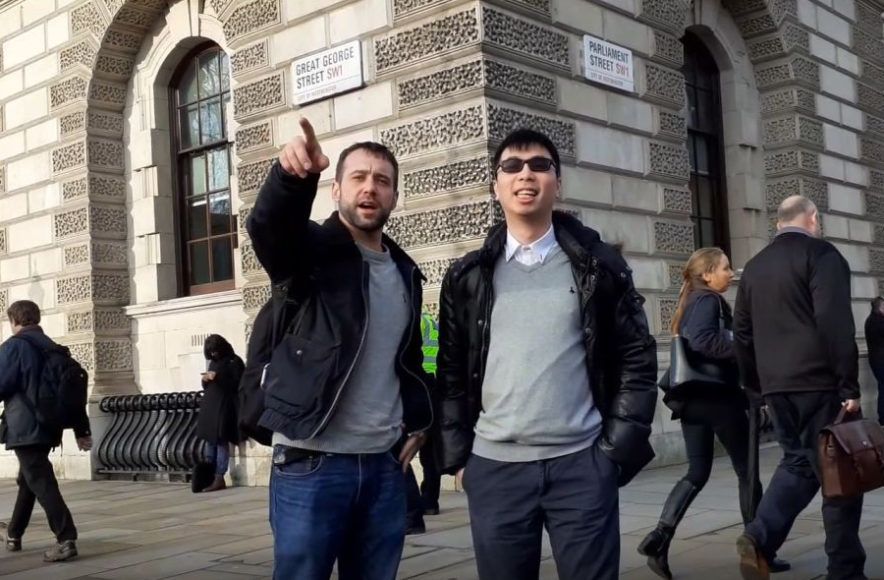A voice for the voiceless

Justin recently went to the Cabinet Office to talk about how elections can be more accessible for people with learning disabilities, like him. Find out what happened.
I recently went to meet officials at the Cabinet Office. This is the government department responsible for making information about voting and democracy easier for disabled people to understand. To prepare, my support worker Matt and I wrote some notes about our experiences, and the general election back in December. We went through the issues and printed the notes onto some reading cards, to use on the day.
How I felt
It made me feel great to be invited to the Cabinet office. I was able to tell the people in the government who are responsible for elections about how they can improve voting and information for disabled people. As well as this I felt like I was achieving my goal to make sure disabled peoples’ voices are being heard.
I met Matt at 11:00 on the day at United Response. Then we traveled up to Waterloo together where we met John who works with United Response to make sure politicians know about issues that are important for people we support.
We all walked over Westminster Bridge to the Cabinet Office. While we were walking up I was talking to Matt and John about how I was excited and nervous at the same time, because this trip to the Cabinet Office was not just all about me. It was also about all disabled people; people that I have met and helped in my politics group called Speak as 1 and all the other people without any support.
Talking to the Cabinet Office Accessible Elections Team
At the meeting I did a presentation to the top civil servants who advise the government how to make voting more accessible. I talked about how I find the voting process, how accessible the information was for those with additional needs, how accessible information was from political parties in regards to manifestos, posters and T.V ads, how local councils provide clear information, and my experience of all these issues at the general election in December.
My experience
Personally I find the voting process very straight forward, because of my experience with a youth council in the past and my work with Speak as 1. Through this I learned more about politics and how to vote and how to register as well. But I made sure they knew that information from the general election was not really accessible to people with higher needs.
This was because the easy read manifestos were very hard to find and only released a few days before the election, which made it a rush for people with additional needs to vote. I also said some people we spoke to did not know who to vote for and so voted for who their friends or family are voting for. Which is not ideal.
Disabled voters
I pointed out that nearly 1 million people with a learning disability live in England, and easy read information about voting is still not prioritized enough for them. Although my local council sign posted information well and the people were helpful in my polling station, I said that this might not be the same in other areas.
All people should be able to vote
I told them my view that other groups of people cannot vote. I said that homeless people with no address can’t register to vote, and how some pubs or local cafes might help by letting people use their address register voters.
Making sure it gets better
Overall I said that I still think voting and elections are not that accessible for disabled people and things need to improve.